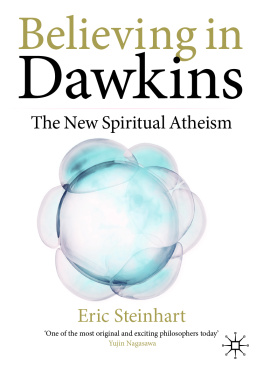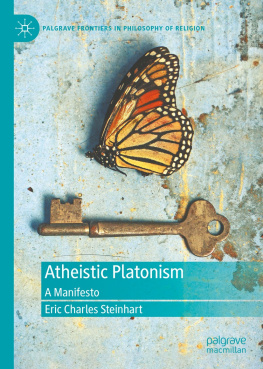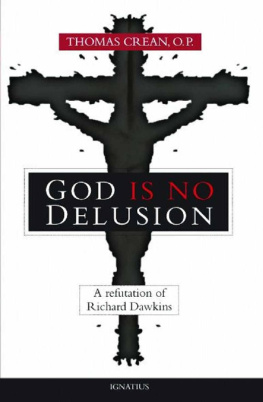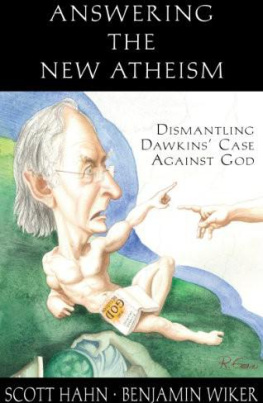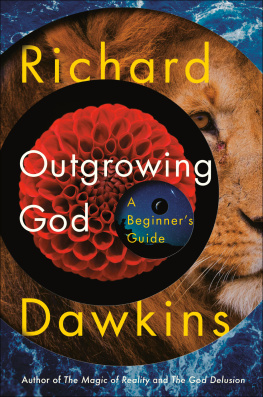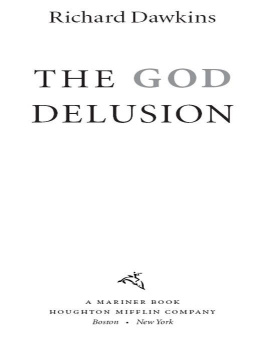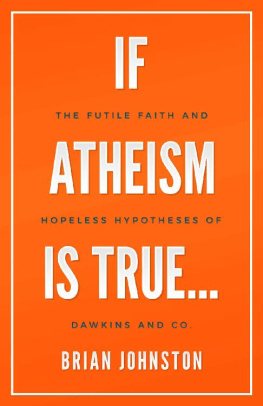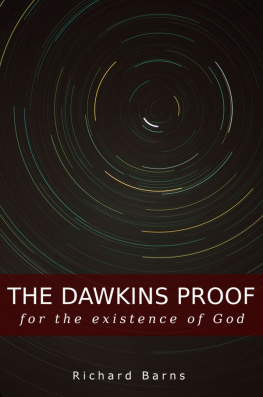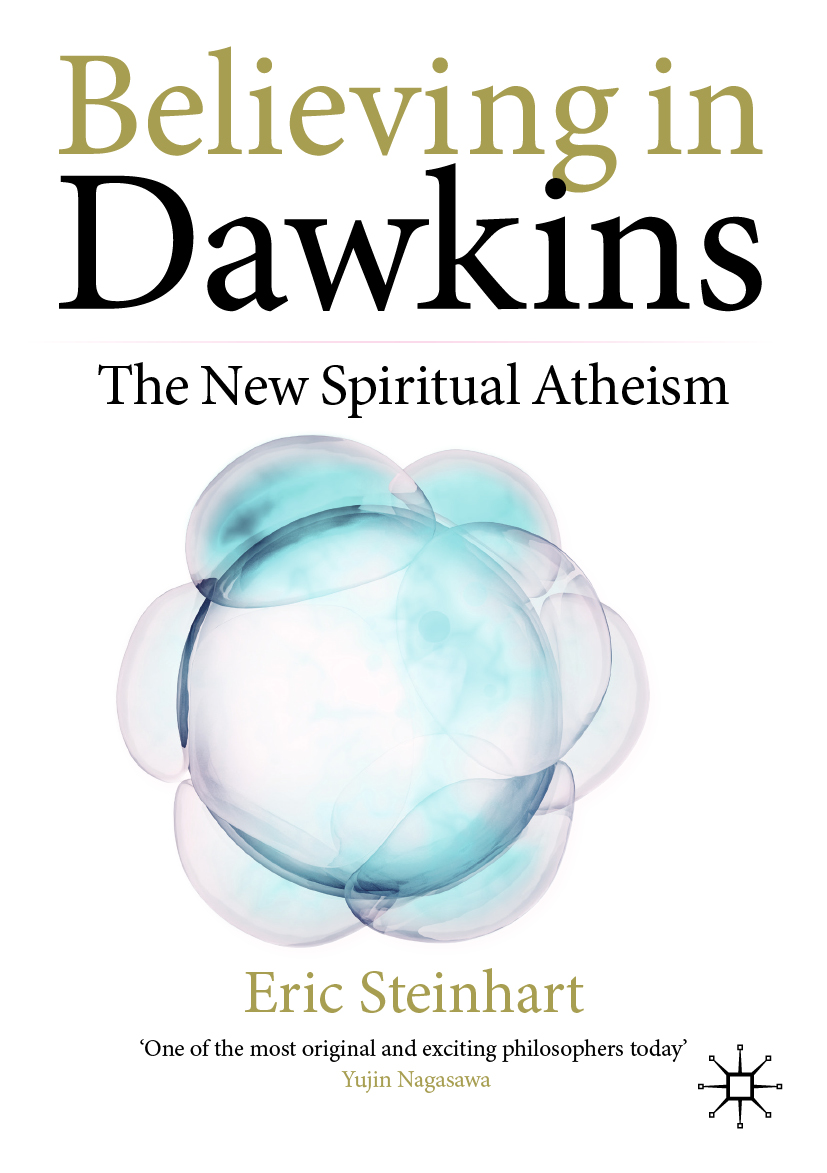Eric Steinhart
Department of Philosophy, William Paterson University, Wayne, NJ, USA
ISBN 978-3-030-43051-1 e-ISBN 978-3-030-43052-8
https://doi.org/10.1007/978-3-030-43052-8
The Editor(s) (if applicable) and The Author(s), under exclusive license to Springer Nature Switzerland AG 2020
This work is subject to copyright. All rights are solely and exclusively licensed by the Publisher, whether the whole or part of the material is concerned, specifically the rights of translation, reprinting, reuse of illustrations, recitation, broadcasting, reproduction on microfilms or in any other physical way, and transmission or information storage and retrieval, electronic adaptation, computer software, or by similar or dissimilar methodology now known or hereafter developed.
The use of general descriptive names, registered names, trademarks, service marks, etc. in this publication does not imply, even in the absence of a specific statement, that such names are exempt from the relevant protective laws and regulations and therefore free for general use.
The publisher, the authors and the editors are safe to assume that the advice and information in this book are believed to be true and accurate at the date of publication. Neither the publisher nor the authors or the editors give a warranty, expressed or implied, with respect to the material contained herein or for any errors or omissions that may have been made. The publisher remains neutral with regard to jurisdictional claims in published maps and institutional affiliations.
Cover credit: Mopic/shutterstock.com
This Palgrave Macmillan imprint is published by the registered company Springer Nature Switzerland AG
The registered company address is: Gewerbestrasse 11, 6330 Cham, Switzerland
Acknowledgments
I thank Yujin Nagasawa for his persistent support, and for his vision of a better future for philosophical thought about religion. I thank Donald Crosby for encouraging me in my studies of religious naturalism. Thanks also to John Schellenberg and Paul Draper for their efforts to expand the philosophy of religion. Thanks go to Nancy Frankenberry for her early encouragement of this project. Thanks are due to Helen de Cruz and Stefani Ruper for their interviews which helped me to sharpen my ideas. I am very grateful to Stephanie Rivera Berruz for constantly challenging me to think in new ways. Brendan George, at Palgrave, continues to be a wonderful editor. My wife Kathleen Wallace deserves extraordinary credit for her support through all my projects. I gratefully appreciate the support of Dartmouth College and William Paterson University.
Praise for Believing in Dawkins
Eric Steinhart is one of the most original and exciting philosophers today. In Believing in Dawkins, he rigorously elaborates and defends Richard Dawkins work as a unique rational enterprise that explores questions not only about the material universe but also about value and meaning. The form of spiritual atheism which Steinhart develops here should be welcomed as an attractive new option for a rapidly growing population of people who identify themselves as spiritual but not religious. I wholeheartedly recommend this extraordinary book for its extraordinary contributions to philosophy, science, and spirituality.
Yujin Nagasawa, H.G. Wood Professor of the Philosophy of Religion, University of Birmingham, UK
Eric Steinhart provides an intriguing and imaginative systematic development of philosophical and spiritual themes that he finds in the writings and sayings of Richard Dawkins. Steinhart is careful not to attribute the elaborated system to Dawkins: the work is Steinharts attempt to show one way in which Dawkins work can be reconceived as a judiciously constructed philosophical theory of everything. Apart from anything else, the work serves as a provocation to those who do not care for spiritual naturalism to wonder whether there are other ways in which they might similarly believe in Dawkins.
Graham Oppy, Professor of Philosophy at Monash University, Australia, and Chief Editor of the Australasian Philosophical Review
Abbreviations for Dawkins Writings
Clinton Richard Dawkins has written many books, and I will frequently refer to them. Besides his books, I will use many of his articles. And, besides these writings, I have transcripts of some of his lectures and debates. I have watched many of his videos. But my focus will be on his published writings. I will refer to a few of his many newspaper articles. Since many of his short articles have been incorporated into his books, I will mainly refer to the books. To make reference to his works easier, I will use abbreviations followed by page numbers. For example, (GD 97) refers to page 97 in
The God Delusion. Information about each book or article is in the References. To make my own writing flow more easily, Ill put these references into footnotes. If some paragraph has many references,
Ill list them all in the note for its first sentence. Here is a list of some of his writings, along with the abbreviations I will use for them:
SG (1976) The Selfish Gene;
EP (1982) The Extended Phenotype;
BW (1986) The Blind Watchmaker;
EE (1988) The evolution of evolvability;
AVL (1994) An atheists view of life;
ROE (1995a) River out of Eden;
CMI (1996a) Climbing Mount Improbable;
OTTR (1997) Obscurantism to the rescue;
UR (1998a) Unweaving the Rainbow;
ADC (2003a) A Devils Chaplain;
TL (2003b) The Tanner Lectures;
SS (2004a) The sacred and the scientist;
WHO (2004b) Who owns the argument from improbability?;
IA (2006a) Intelligent aliens;
SSSF (2007) Should science speak to faith? (with Krauss);
FH (2007) The Four Horsemen (with Dennett, Harris, Hitchens);
GD (2008) The God Delusion;
GSE (2009) The Greatest Show on Earth;
AK (2012a) Afterword to Krauss;
MR (2012b) The Magic of Reality;
BCD (2015a) Brief Candle in the Dark;
AT (2016) The Ancestors Tale;
SITS (2017) Science in the Soul.

